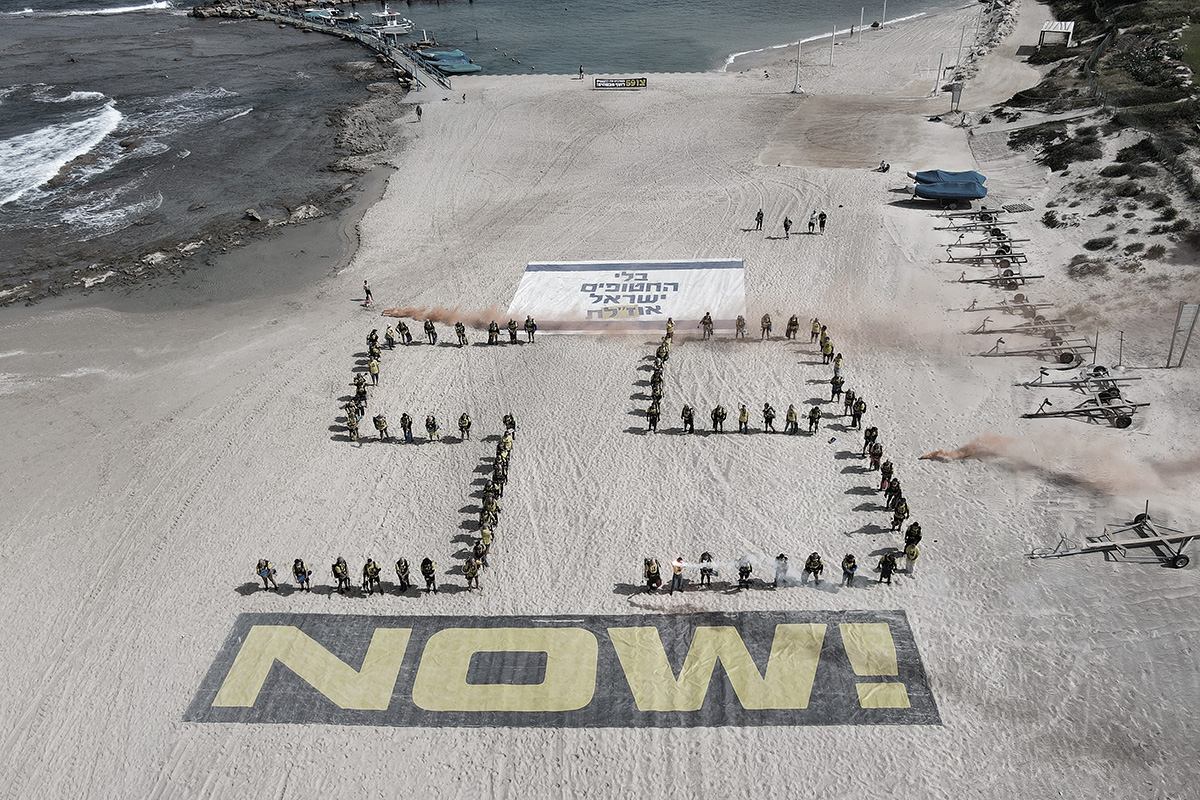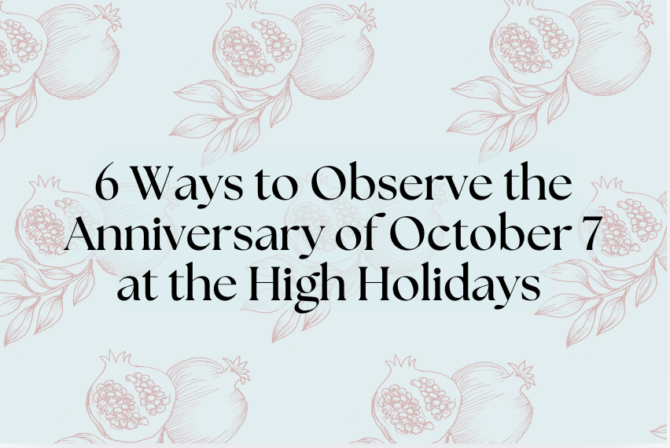Wildfires broke out in Jerusalem on Israel’s Memorial Day and Independence Day, reflecting the mood of the nation. They prevented the airing of the country’s usual torch ceremony and made it impossible to host many events on Wednesday evening, including a rally in Hostage Square. But the Israeli hostages who returned from captivity both this year and earlier all found ways to mark both Israel’s somber Day of Remembrance and what is meant to be the nation’s biggest day of celebration. It is even more bittersweet this year, with a war the majority of Israelis want to halt raging on, and with 59 hostages still in Gaza.
Here is what some of the released hostages did this week to honor their fallen and call for the return of those left behind.
Eli Sharabi
Eli Sharabi was meant to be one of two former hostages to light a torch at Israel’s official Independence Day torch lighting ceremony. However, the ceremony, which usually airs live from Mount Herzl in Jerusalem, could not take place due to the fires. The dress rehearsal to the event, in which Sharabi couldn’t participate, aired instead; Sharabi’s name was called but Emily Damari lit the torch by herself.
Instead, another video of him was shared, one of his visit to his wife’s and daughters’ graves. Lianne, Yahel and Noiya were all murdered on October 7, the same day Sharabi was taken to Gaza. On Yom HaZikaron, those who have lost their loved ones to battles or terror attacks usually go up to their graves. Sharabi visited his beloveds final resting place at Kfar HaRif Cemetery, but also talked about the beloved family member he lost after October 7 that he still hasn’t gotten to lay to rest — Yossi, his brother, who was killed while in Hamas captivity, and whose body is still being held.
“Everyone who met you felt beyond that embarrassment and cynical British humor the humbleness, the caring, the kind-heartedness,” Sharabi said of his late wife, a British volunteer at Kibbutz Be’eri who ended up staying behind and starting a family and life there after meeting Eli. “You were killed with a brutality that has no explanation — in a crime that has no justification. Even in the hardest moments, I hold on to what you’ve left behind: an endless love, a joy of life, memories of light. The world misses you, and I miss you in every breath. Lay to rest my love, always.”
He spoke of his oldest daughter Noiya, a “child of nature and community,” praising how sensitive, delicate but strong she was, with a huge heart that saw people and felt everything. He shared that she had “a heart that always chose good.”
“My Noiya, you had so many dreams, so much future, everything was cut short with cruelty that has no words,” he said. “I promise you won’t be forgotten, your heart, tenderness, light, we will keep telling of it, remembering it, living it.”
He called Yahel, his youngest, a “child of freedom and open skies.”
“You were beautiful from the outside but mostly from the inside. You had a light that couldn’t stay contained, that spread to everyone near you. You loved thrills, skydiving, diving, whatever brought up your heartbeat and your smile. You always wanted to taste life to the fullest, like you knew you had to get everything done fast.” He talked about missing her laughter, a laughter he promised to never forget along with her light and love for life.
Of his brother, he said, “It’s hard to speak of you in past tense.” He called his loss, along with rest, unimaginable and inconceivable. He said he had a huge heart, was a man whose kindness and generosity spoke through actions, not words, and who found an anchor in his family. He remembered the calm and peace of his personality and compared it to the ocean he loved to surf so much. He said that his world will never be complete without him.
Sharabi became a true hero when he shared the story of his captivity with the show “Uvda.” He continues to fight for his fellow hostages, especially Alon Ohel, who he adopted as a son through his days in captivity.
Emily Damari
Emily Damari lit the torch at the rehearsal for the official Independence Day torch lighting ceremony; she received tears and standing ovations.
Damari became an icon when she held up her hand after her return from captivity, proudly sharing her two missing fingers like a rock out sign. As the announcer at the ceremony said, she didn’t want to become a symbol. But Damari rose to the challenge, speaking about how she was there to light that torch on behalf of the 59 hostages still in Gaza, and how we must do everything to bring them home. She spoke about the two hostages she knew the best, Gali and Ziv Berman, both taken from Kfar Aza like her, her neighbors, her friends, her loved ones, still there. She spoke about her kibbutz’s fallen — 64 people including her close friends Daniel Peled and Yuval Salomon. She dedicated the lit torch to the fallen soldiers, the orphans and widows and grieving family. She promised Gali and Ziv that soon they’ll watch pink sunsets together and thanked the “Kadosh Baruch Hu,” for the strength to survive. She also dedicated her lighting to the Israeli people “that I love so much,” and ended with a promise that we still have to look forward to something: “All the good that is still to come when everyone comes back home.”
Yarden Bibas
Yarden Bibas shared a message for the nation on Instagram:
“On Israel’s 76th Independence Day, I was in a tunnel and didn’t think that Israel was celebrating Independence Day while at war and with hostages in captivity,” he wrote, “Now, on the 77th Independence Day, the war is still ongoing, and there are still hostages in captivity — only this time, I am home. I returned to an empty home, and after everything I’ve been through and am still going through, I still call this country my home and choose life every single day. This home exists thanks to my family who remained and support me and thanks to the wonderful people of Israel.”
“This year, I cannot celebrate my independence because I have brothers and sisters who are still being held hostage and my heart is still there with them. I will not be able to heal or rest until they return. Please let the words ‘to be a free people in our land’ come true for everyone,” he continued, referring to the words of the Israeli national anthem, “HaTikvah” (“The Hope”).
He urged others to join him in sharing the caption “I have no independence because they are still there” to their social media pages.
The Bibas family also shared a moving recitation of the Miriam Yalan-Shteklis poem “Gingi,” the Hebrew nickname for redhead, read by iconic Israeli children’s entertainer Tzipi Shavit, herself known for her head of bright red hair:
Liat Atzili
Lia Atzili joined the 20th joint Palestinian and Israeli Memorial Day ceremony in Israel’s Ra’anana. She was captured from her kibbutz of Nir Oz on October 7 — her husband Aviv was killed by the intruding forces while trying to protect the kibbutz. Atzili, a teacher, spoke about her late husband’s love for the kibbutz’s fields and tractors, his technical skills, his excellent hands, the fact that he could fix everything. He loved the wild nature of the Negev that surrounded their home. He painted delicate pictures of that nature on car parts and other metal. “He was the best person I knew,” she said, sharing her gratitude for those three decades they spent together. She said that while in captivity, she thought of all the things that she still had to be grateful for, and realized she still had control of who she was, saying that more than being a teacher, she is a constant student, and she is constantly thinking about how important it is to see the “other” and take responsibility, and how that can help create peace and a just and moral society.
The families of the hostages still in Gaza
Many of the hostages who returned and the families of the hostages still there took part in a clip from Israeli singer Ivri Lider, a cover of the song “Heye Li Chave, Heye Li Ach,” which means, be my friend, be my brother — it urges us to extend our arms out to those in need.
The video shows many returned hostages and the families and siblings of the hostages still in Gaza singing the song and looking at their pictures and their videos from their lives before captivity. It ends with the caption “59 to independence,” suggesting, like Yarden Bibas does in his post, that there is no true independence or freedom until the hostages are all back home.








